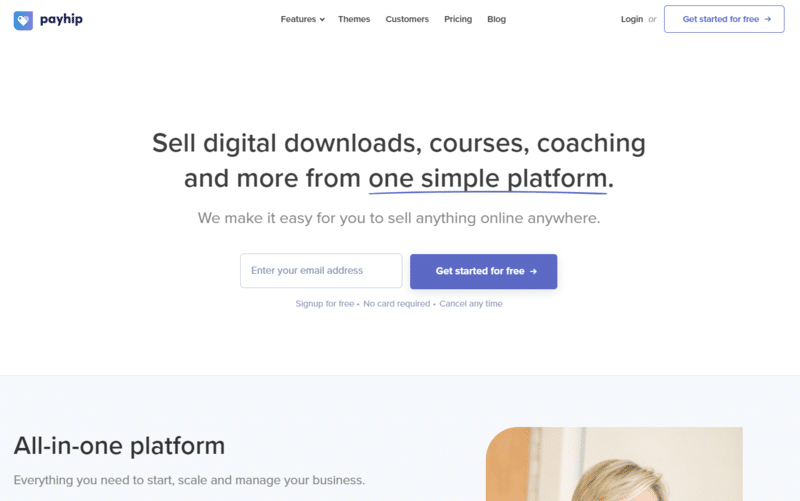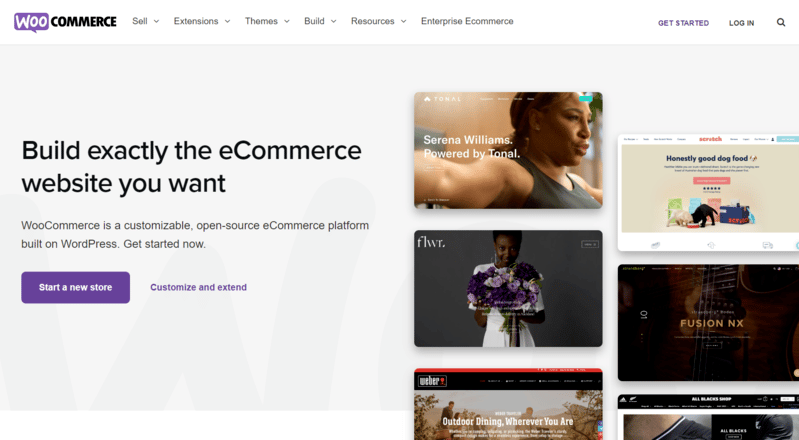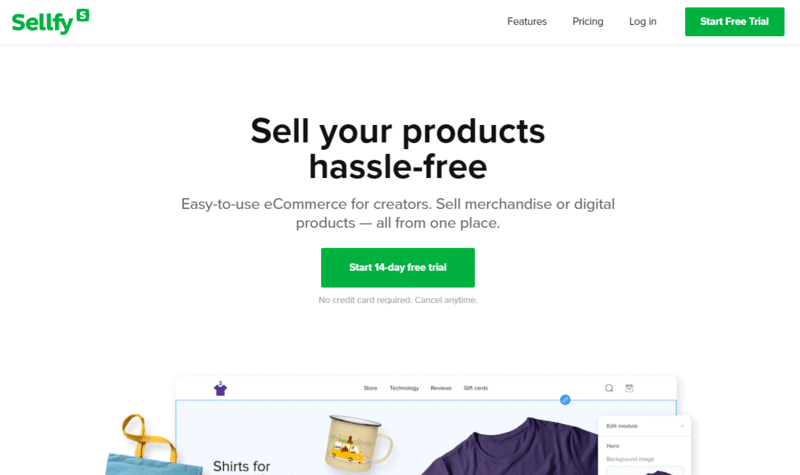As a seller, it can be quite overwhelming to find the right platform to sell your products online. Payhip is a wonderful choice, among sellers for its convenience in selling digital products. However, it may not suit everyone. In this blog post, we will delve into some of the best Payhip alternatives that you can consider when it comes to selling your products.
Payhip serves as an e-commerce platform that helps sellers sell their digital goods like ebooks, music, videos, and software. While Payhip is undeniably a solid platform, it doesn’t suit everyone as usual.
Some sellers might find Payhip’s pricing structure less budget-friendly.
Therefore, it becomes crucial to explore other alternatives available to identify the fit for your specific requirements.
If you are looking for some of the best Payhip alternatives, you’re in luck as there are many options. In this blog post, we will take a look at some of the best alternatives to Payhip that allow you to effectively sell your digital products. We’ll also outline the advantages and disadvantages of each platform so that you are able to make a decision.
So, if you are interested in this topic, let’s get started with the basics.
Payhip Alternatives: Key Takeaways
- For most people, the best Payhip alternative with similar features is Podia, which provides tools and services for creators, entrepreneurs, and small businesses to sell digital products and online courses easily.
- Payhip is a popular digital content-selling platform, but it’s not always the best fit for everyone.
- There are three main categories of Payhip alternatives available out there: self-hosted ecommerce platforms, hosted ecommerce platforms, and digital product selling platforms.
- Choosing the right alternative mainly depends on your specific needs and preferences.
What Is Payhip and How Does It Work?

Payhip is an e-commerce platform that allows content creators to sell digital products such as ebooks, music, software, and more. As a creator, you can upload your digital products to Payhip and set your own price. Payhip then handles the payment processing and delivers the product to the customer.
In short, Payhip stands as an all-in-one eCommerce solution for entrepreneurs like me. This platform allows users to sell a variety of products and services such as digital downloads, online courses, coaching programs plus subscriptions.
To top it off, the service is recognized for being user-friendly, making selling easier for beginners.
One of the benefits of using Payhip is that it provides creators with a lot of control over their products. For example, I can choose to offer my products for free or set a minimum price. I can also offer discounts and create coupon codes. Additionally, I can customize the checkout process and add my own branding.
Payhip also offers creators a variety of tools to help them market their products.
For example, I can create landing pages to promote my products, and I can use Payhip’s built-in email marketing tools to send newsletters and promotional emails to my customers.
Without a doubt, Payhip has established itself among the go-to eCommerce platforms in today’s market.
Overall, Payhip is a great platform for creators who want to sell digital products online. It’s easy to use, provides a lot of control and flexibility, and offers a variety of marketing tools to help creators succeed online.
Why Look for Payhip Alternatives?
As someone who has used Payhip for a while, I have come to appreciate its features, including its easy-to-use interface, customizable checkout pages, and the ability to sell digital products with ease.
However, there are times when I have found myself looking for alternatives to Payhip.
One reason to look for Payhip alternatives is that it may not be the best fit for everyone. While it has a lot of great features, it may not meet the specific needs of every user. For example, some users may require a more robust set of features, such as the ability to sell physical products or a wider range of payment options.
Another reason to look for alternatives is that Payhip may not offer the best pricing or value for some users.
While Payhip’s pricing is reasonable and competitive, there may be other platforms that offer better pricing. For example, some users may prefer a platform that offers a lower transaction fee or a more generous free plan.
Notably, different platforms excel in varied areas – from customer service and support to pricing flexibility and feature sets. It comes down to what you value most as an online seller.
Lastly, some users may simply prefer to use a different platform for personal or business reasons. For example, they may prefer a platform that has a larger user base or a better reputation in their industry.
Overall, while Payhip is a great platform, there are many reasons why users may want to explore alternatives. Whether it’s because of specific feature needs, pricing concerns, or personal preferences, it’s always a good idea to explore different options and find the platform that best meets your needs as a seller.
Understanding Your Basic Needs
Exploring alternatives to Payhip is all about understanding your individual or business needs.
The first step in choosing the right platform for selling digital products lies in a thorough self-assessment of your specific requirements and goals. You’ll want to take into consideration factors like budget, the technical expertise required, customer support availability, and the scale at which you’re looking to operate.
It’s crucial to match those needs with what each alternative offers before making an informed decision.
For instance, if you wish to sell numerous products online without dealing with complex technical setups, platforms like Shopify or BigCommerce might be right up your alley owing to their user-friendly interfaces.
Conversely, if customization capabilities hold more value for you than ease of use perhaps WooCommerce or Magento could serve you better as these are known for their customizable nature despite being heavier on the tech side.
Basically, there are 3 types of Payhip alternatives out there.
- Self-hosted ecommerce platforms
- Hosted ecommerce platforms
- Digital product-selling platforms
Each category will have its own set of options, so you can choose the one that best fits your needs.
Self-Hosted Ecommerce Platforms
When looking for alternatives to Payhip, self-hosted ecommerce platforms like WooCommerce, Magento, and OpenCart offer robust features and flexibility for selling digital products online.
1. WooCommerce

WooCommerce is a self-hosted eCommerce platform that gives you complete control over your online store. It can be installed and used on your own server, allowing you to customize and manage every aspect of your website.
As one of the best alternatives to Payhip, WooCommerce is a popular choice for selling a wide range of products, including memberships, courses, digital downloads, and physical items. While WooCommerce itself is free to use with self-hosted sites, keep in mind that you’ll need to pay for hosting for the WordPress CMS.
With its flexibility and robust features, WooCommerce empowers businesses to create an online store tailored to their specific needs. And, it integrates seamlessly with various payment gateways. Whether you want to accept credit cards, PayPal, or other payment methods, WooCommerce has got you covered.
One of the significant advantages of using WooCommerce is the vast selection of WordPress themes and plugins available. These extensions allow you to enhance the functionality of your online store further. From advanced product variations to shipping calculators and marketing tools, there’s a plugin for almost everything you can imagine.
Moreover, WooCommerce provides detailed reporting and analytics, enabling you to track your store’s performance, monitor sales, and gain valuable insights into customer behavior.
Setting up a basic online store is relatively straightforward, and for those who need more complex configurations, the platform offers extensive documentation and a thriving community of users and developers.
Overall, WooCommerce is a great Payhip alternative and it stands out as an excellent choice for entrepreneurs who want complete control and customization over their online stores. With its flexibility, extensive range of add-ons, and scalability, it has solidified its place as one of the leading eCommerce platforms in the market.
2. Magento or Adobe Commerce
Magento is an open-source e-commerce platform that allows businesses to create and manage online stores. It was first developed in 2007 and has since become one of the most popular and widely used e-commerce solutions globally. Magento offers a robust set of features and tools to help businesses easily create online storefronts.
It’s used by popular brands like Land Rover, Timex, and Kurt Geiger. With over 250,000 retailers worldwide trusting Magento for their ecommerce needs, it has established itself as one of the biggest players in the industry.
As a self-hosted platform, Magento offers complete control and flexibility to customize your online store according to your specific requirements. Its open-source structure allows for holistic customization, ensuring that you can tailor your website to match your brand’s unique identity and stand out from the competition.
Update: On June 19, 2018, Magento was acquired by Adobe for $1.68bn with a view to integrating it into Adobe Experience Cloud, its Enterprise CMS platform. While it’s still popular as Magento, the new name is Adobe Commerce.
3. OpenCart
OpenCart is an open-source e-commerce software that is widely used by small and medium-sized merchants to sell products online. It was first released in 2010 and has since gained popularity as a user-friendly and customizable solution for setting up e-commerce websites. As an open-source platform, OpenCart allows developers and designers to modify and customize the software to suit their specific needs and requirements.
It offers a cost-effective Payhip alternative, making it a popular choice for all types of businesses.
With OpenCart, businesses have more control over their online stores as it falls under the category of self-hosted e-commerce platforms. You can customize and manage your store according to your specific needs.
Many small and medium-sized businesses appreciate OpenCart’s ease of use and its feature-richness, which allows them to create professional-looking online stores without having advanced technical knowledge or skills.
Hosted-Ecommerce Platforms
There are several hosted ecommerce platforms to consider as alternatives to Payhip, including…
1. Shopify

Shopify is a leading ecommerce platform that provides small to mid-sized businesses with the tools they need to sell products online. With its user-friendly interface and extensive features, it’s no wonder that Shopify is considered one of the top competitors to Payhip in the hosted ecommerce platforms industry.
Whether you’re selling physical or digital products, Shopify offers a range of customizable themes, secure payment options, and seamless integration with third-party apps. When comparing alternatives to Payhip like BetterCommerce and Volusion, Shopify stands out for its affordability, robust functionality, and positive user reviews.
If you’re looking for a reliable platform to take your online business to the next level, consider giving Shopify a try.
It’s one of the most popular choices among entrepreneurs due to its ease of use and scalability. Whether you’re just starting your online business or already have an established store, Shopify caters to all stages of growth.
2. BigCommerce
BigCommerce is a popular e-commerce platform that helps businesses easily create and manage their online stores. It provides a range of tools and features that enable merchants to set up and customize their websites, sell products or services, manage inventory, process payments, and handle shipping and fulfillment. BigCommerce is designed to be user-friendly, making it accessible to both small and large businesses without requiring extensive technical expertise.
Overall, it’s a top-notch ecommerce platform that offers a wide range of features and functionalities.
With an impressive score of 96% in comparison to other platforms like eChannelHub and Payhip, BigCommerce proves its worth in terms of features, pricing, and overall performance.
It holds a significant market share among the top 1 million sites using hosted ecommerce solutions, surpassing competitors such as Squarespace and Wix. Being an Open SaaS platform, it combines the benefits of multi-tenant SaaS solutions with its comprehensive offerings. One of the key strengths of BigCommerce is its robust and scalable infrastructure. It can handle high levels of traffic and transactions without compromising on site speed or performance.
In fact, BigCommerce is often considered an alternative to Shopify due to its robust features and flexibility. For those looking for Payhip alternatives, BigCommerce stands out as a reliable choice.
3. Squarespace
Squarespace is a popular all-in-one website building and hosting platform that allows individuals and businesses to create and manage their websites with ease. It is known for its user-friendly interface and a wide range of customizable templates, making it accessible to people with little to no technical expertise.
It has nearly 4 million active users. While it may not be as widely used by the top websites, Squarespace does have a market share of around 13% in hosted website solutions.
It is known for its user-friendly website-building functionality, making it easy for anyone to create and customize their own website. If you’re looking for an alternative to Payhip that offers ecommerce features, Squarespace is definitely worth considering. Starting from online stores, blogs, portfolios, and more, Squarespace provides a versatile platform that caters to various needs. Its e-commerce features enable users to set up and manage online stores with ease.
They offer a range of tools and options to help you sell digital products and make money online. Additionally, they offer built-in SEO tools, which can help improve website visibility on search engines and attract more visitors.
Digital Product Selling Platforms
Some alternatives to Payhip for selling digital products include Podia, Gumroad, E-junkie, and Sellfy. These platforms offer a range of features and can help you effectively sell your digital products online.
Let’s find out more about these platforms to determine which platform is best for you.
1. Podia

Podia is an online platform that allows users to build websites, sell digital products like courses, ebooks, webinars, and coaching services, and host communities. It provides a range of useful features and tools to create a professional-looking website without the need for coding or design skills.
It’s a popular alternative to Payhip for selling digital products. It stands out because it does not charge any transaction fees on paid plans, which means you get to keep more of your earnings.
Podia aims to provide a comprehensive solution for creators and entrepreneurs, offering website building, product selling, community hosting, and email marketing functionalities within a single platform.
One of the key reasons why people choose Podia is its reputation for excellent customer support.
If you have any questions or issues, their team is there to help you every step of the way.
When it comes to selling digital products, Podia is highly regarded and often mentioned alongside other well-known platforms like Sellfy, Gumroad, Ecwid, and Shopify.
2. Gumroad

Gumroad is a versatile platform that allows creators to sell both physical goods and digital products. It’s commonly known as the go-to platform for selling ebooks, templates, music, and videos. With tools similar to Payhip, Gumroad provides an easy way for sellers to showcase their products and reach a wider audience.
Whether you’re looking to sell digital downloads or physical items, Gumroad offers a user-friendly interface and plenty of helpful features to make your selling experience seamless.
One of the key advantages of Gumroad is its simplicity.
Setting up a store on the platform is a straightforward process that doesn’t require any special skills. You just need to upload your digital products, set prices, and customize your storefronts to start selling.
You can also add promotional images, descriptions, and even preview files to entice potential buyers.
3. E-junkie
E-junkie is a shopping cart and digital-delivery service that allows users to sell products online. It offers integration with various payment processors, including PayPal, 2Checkout, and Authorize.Net.
With E-junkie, you can sell both digital downloads and physical merchandise at fixed prices or through a pay-what-you-want model. It’s a versatile platform for sellers who mainly deal with digital products.
In terms of functionality, E-junkie can be compared to platforms like Shopify as an e-commerce solution for selling digital goods online. As a Payhip alternative, it’s a strong contender.
One of the key distinctions between Payhip and E-junkie is the pricing structure. E-junkie typically charges a monthly subscription fee based on the number of products you’re selling and the amount of disk space required for your files. On the other hand, Payhip operates on a transaction-based fee, where you pay a percentage of each sale you make.
4. Sellfy

Sellfy is a popular ecommerce platform that helps people sell both digital and physical products on their online store. It offers a range of features, integrations, and even built-in email marketing tools.
I found Sellfy to be a great alternative to PayHip because it focuses more on being an online store rather than just a digital product-selling platform. One of the Sellfy features I really liked about Sellfy is the ability to create digital subscriptions and charge customers on a weekly, monthly, or yearly basis.
It’s listed as one of the top alternatives to PayHip along with other platforms like Selz, SendOwl, and Gumroad. Overall, Sellfy provides users with everything they need to successfully sell their products online.
How to Choose the Right Alternative?
To choose the right Payhip alternative, it’s crucial to consider your specific needs.
First, think about the type of products you want to sell and whether you need a platform that specializes in digital downloads or offers a wider range of ecommerce features.
Consider your budget as well since some alternatives have transaction fees or require higher monthly subscriptions. Look into the functionality and ease of use of each platform, ensuring it aligns with your technical skills and requirements.
Finally, check for reviews and recommendations from other users to get insights into their experiences with different alternatives. By carefully evaluating these factors, you should be able to find the perfect alternative that suits your business goals and preferences. Trying each alternative for a few weeks is also a smart strategy. Yes, it may cost you a bit more in terms of time and effort, but it will be worth it in the long run.
Final Words and Thoughts
When it comes to finding the best alternatives to Payhip, there are plenty of options available.
Whether you are looking for a self-hosted e-commerce platform like WooCommerce or Magento, a hosted platform like Shopify or BigCommerce, or a digital product selling platform like Gumroad, Podia, or any other platform that I couldn’t mention there, there’s something there to suit your business needs.
Take the time to understand what features and functionalities are important to you, and choose the right Payhip alternative that will help you achieve your goals in selling digital products.
I have researched and found some of the best alternatives that I’ve discussed above. As you can see, each platform has its unique strengths and can help you effectively sell your digital products online.
If you are looking for a free alternative, one option you can consider is Podia. While Payhip offers a Free Forever plan with a 5% transaction fee, Podia allows you to sell your digital products with an 8% transaction fee.
Podia is a great choice if you’re just starting out and want to minimize your expenses while still having the ability to sell your products online. With Podia, you can easily upload and manage your digital products, track sales data, and connect with your audience through their built-in marketing features.





